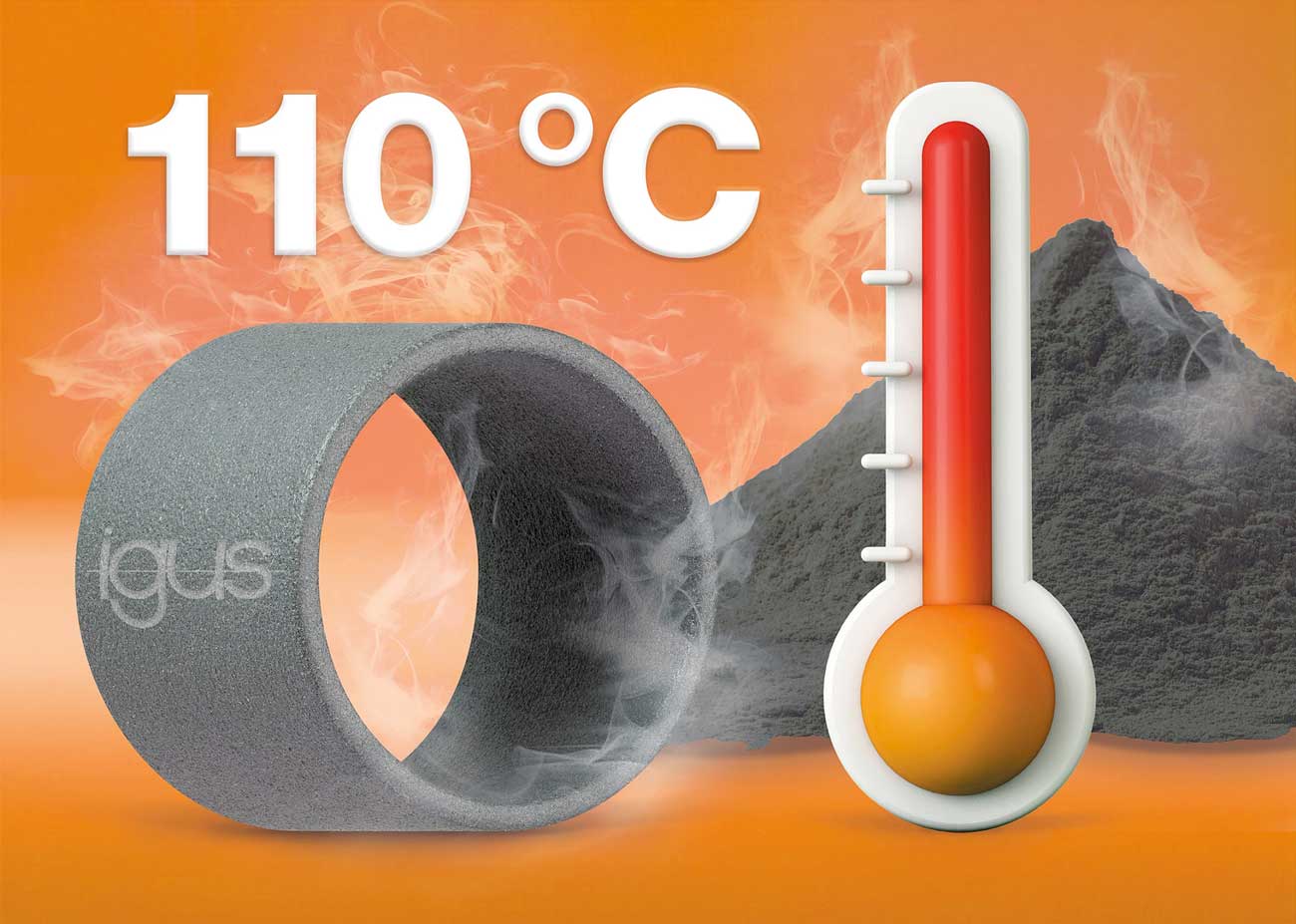3D-printed polymer components will be able to withstand much higher temperatures in the future – for example in the engine compartment of a car. While standard SLS printing materials on the market threaten to deform at over 80°C, the new powdered material iglidur i230 from igus can withstand a long-term application temperature of 110°C. The material is also PTFE-free and around 80 percent more wear-resistant than the classic PA12.
For small series and prototypes in particular, more and more designers are turning to 3D printers to produce components quickly and cost-effectively. Particularly popular: selective laser sintering (SLS), an additive process in which a printer melts plastic powder layer by layer to form components, such as a plain bearing. The problem: components made from commercially available SLS printing materials such as PA12 are generally only used in applications with temperatures of 80°C or less. Beyond this limit, the material becomes soft and loses its dimensional stability. This is a knock-out criterion for many areas of application, such as for bearings in the engine compartment of a car, industrial plants or many air conditioning and cooling systems. “As the demand for 3D-printed bearings for such applications with high ambient temperatures has increased recently, we have developed a new SLS printing material called iglidur i230,” says Paul Gomer, material developer in 3D printing at igus. Tests in certified external laboratories in accordance with DIN EN ISO 75 HDT-A and HDT-B have proven its heat resistance. According to these tests, the powdery printing material is suitable for long-term application temperatures of up to 110°C. It can even withstand extreme temperatures of up to 170°C for short periods without deforming. The material is also electrostatically dissipative and thus protects machines and systems from electrostatic discharges, which in the worst case can cause fires and explosions. iglidur i230, like many other materials from igus, is also free from PTFE.
80 percent more wear-resistant than PA12
iglidur i230 is not only particularly temperature-resistant, but also resistant to movement. Tests in igus’ in-house laboratory have proven that the printed material is around 80 percent more wear-resistant than PA12. “3D-printed bearings made from iglidur i230 therefore have a significantly longer service life, increase the efficiency of machines, systems and vehicles and reduce the need for maintenance,” says Gomer. At the same time, the material has around 50 percent higher mechanical strength compared to PA12 at room temperature. In addition, the material withstood a pressure of 94 MPa in bending tests. “This makes it possible, for example, to achieve the same component strength in plain bearings with a thinner wall thickness and to save space and weight in compact installation spaces,” emphasizes Gomer. Last but not least, users of 3D-printed bearings made from iglidur i230 can dispense with time-consuming relubrication work. Solid lubricants are integrated into the SLS printing material for low-friction dry running.
Subscribe to our Newsletter
3DPresso is a weekly newsletter that links to the most exciting global stories from the 3D printing and additive manufacturing industry.






















